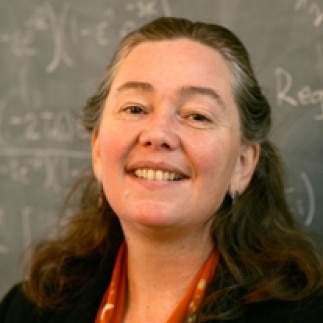
Dorothy Wallace
Professor of Mathematics, Dartmouth College
Dr. Wallace is a professional mathematician with a strong dedication to improving mathematics and quantitative education at all levels. She possesses an unusual breadth of experience: research, teaching, research supervision, curriculum innovation and development, professional development, textbook publication, and overall promotion of new curriculum and pedagogy through systemic change. Dr. Wallace does not tweet or post, but her thoughts on the educational system and on specific teaching issues are available in her regular column for the journal Numeracy, “Parts of the Whole”.
With over 100 publications in pure and applied mathematics and mathematics education, Dr. Wallace has supervised 10 Ph.D. students in mathematics and two Masters students in Liberal Studies, as well as over 50 undergraduate research projects. She has received several teaching awards: The CASE (Carnegie Foundation for the Advancement of Teaching and the Council for Advancement and Support of Education) New Hampshire Professor of the Year Award (2000), the Dartmouth Graduate Mentoring Award (2005), and the Dean’s award for mentoring undergraduate research (2017). She has served as a consultant on numerous education projects nationally.
Wallace has co-authored two textbooks: one in quantum mechanics (The Bell that Rings Light) and the other in mathematical biology (Applications of Calculus in Biology and Medicine). A review of the recently published mathematical biology text says:
“The authors suggest a different pedagogical approach: turn the students into active independent researchers by asking them to pose and answer their own research problems. The concept is something like adopting a “research experiences for undergraduates” framework and applying it to a course in the regular curriculum.”
Wallace’s partnership with GFLEC began before GFLEC itself, with the development of “Money Matters” modules for teaching financial literacy in 2012, which include instructor notes and spreadsheets for student use. In addition, a series of video presentations offer faculty and students opportunities for faculty development and classroom discussion. An accompanying set of case studies offers students an opportunity to make financial decisions. Wallace organized and guided a team of her co-authors to create these materials, which are freely available online. Wallace is currently collaborating with Lusardi and Brown on a non-traditional personal finance textbook.
Before becoming involved in financial literacy, Wallace was a part of the growing effort to promote education in quantitative reasoning, in particular through a series of meetings, events and publications hosted by the National Council on Education and the Disciplines and funded by Pew Charitable Trusts, and culminating in the founding of the National Numeracy Network in 2000, of which Wallace was a founding board member. The early network included four centers providing technical support and curriculum development, one of which was at Dartmouth under Wallace’s supervision. As part of this work, Wallace organized and Dartmouth hosted two key meetings. The first, in 2004, formally established NNN as a membership organization with mission, vision and bylaws. The second meeting, in 2006, organized and launched the journal Numeracy, which serves as the research and professional journal for NNN, of which she is one of several editors.
Before her work in quantitative reasoning, Wallace led a major curriculum development project in interdisciplinary mathematics education. Under her direction as Principal Investigator, the “Math Across the Curriculum” project at Dartmouth, (supported by the National Science Foundation from 1995 to 2001 and including 53 collaborators at Dartmouth and 24 at other institutions), developed 12 new courses and curriculum materials affecting 13 more courses, including over 50 text, videos, and teaching modules supporting interdisciplinary mathematics education. The project sponsored or co-sponsored 7 professional development workshops serving 200 faculty from diverse fields.
Prior to these major projects, Wallace was involved in developing and teaching the current version Graduate Teaching Seminar in her home department, provides professional development for mathematics graduate students while also offering two weeks of summer “math camp” to local high school and middle school students.